By: Judith Akedi MA
“One way of transforming lives of people in slums is through investing in their children’s education. Education provides the opportunity for unlocking the children’s full potential thus enabling them to contribute to the building of a better world. Additionally, nurturing the young generation into the culture of peace through in-school peacebuilding programs such as Shalom’s peace education is key to creating positive change in their behavior and impacting peace and stability in their environs.” Jane Aoko Okeyo, Director, Starays Secondary School
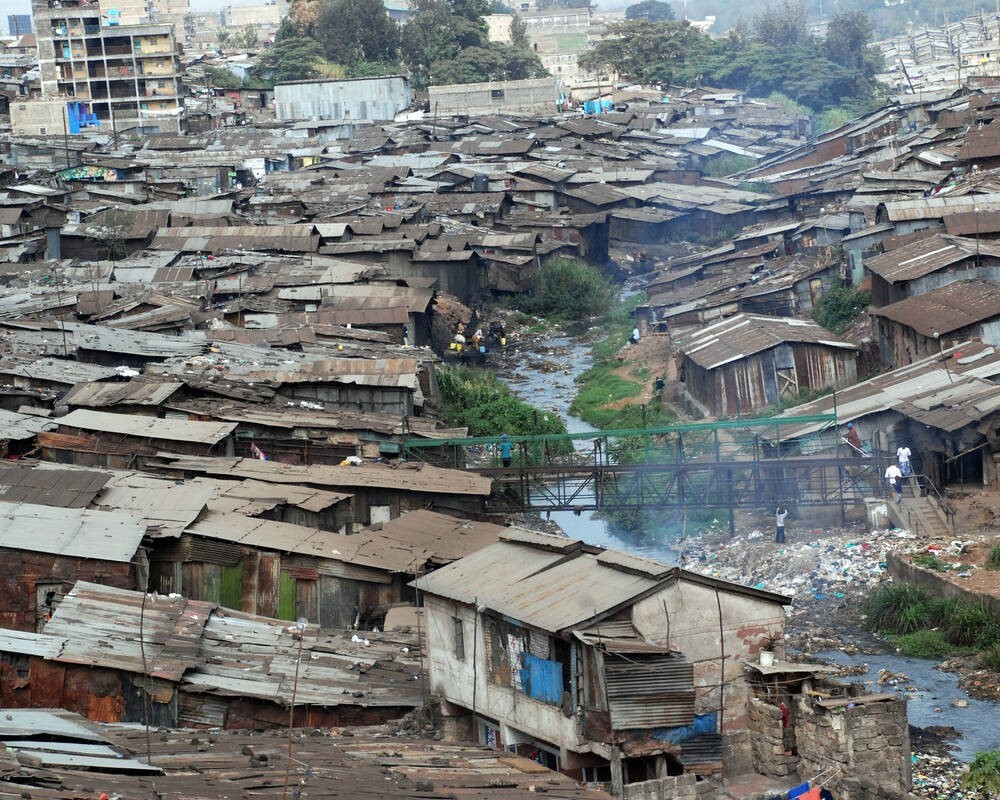
On March 15, 2020, the first case of Covid-19 was confirmed in Kenya. Consequently, the government called for different containment and preventive measures to curb the spread of conoranavirus. Key among these measures was the closure of all educational facilities; an action which affected nearly 17 million learners countrywide.
Mr. David Musembi, a teacher from Valley Bridge Primary in Mathare slums noted that; The prolonged closure of schools spanning at least three quarters of 2020, was a major interruption to the learning process of thousands of children in urban informal settlements (slums) of Nairobi due to their prolonged exposure to the insecurities that bedevil human interaction in the slums.
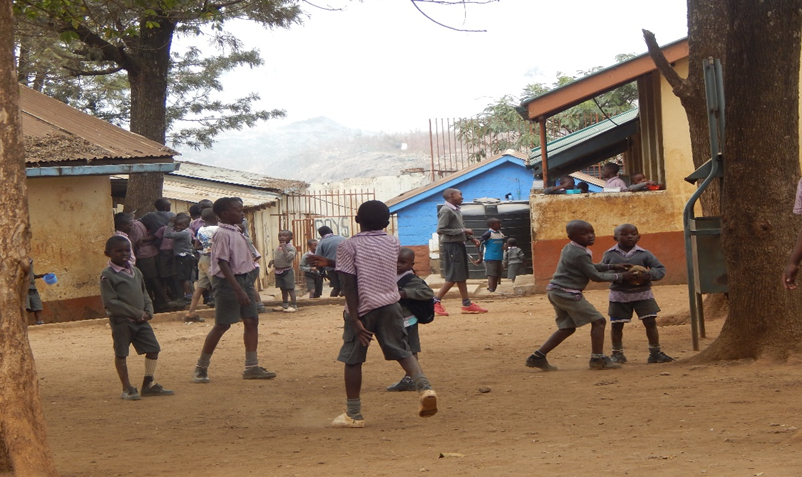
Mrs. Eunea Kwamboka, Headteacher, KICOSHEP Primary in Kibera slums pointed out that; the closure of schools coupled with the deplorable socio-economic conditions in the slums contributed to more devastating consequences for these marginalized learners. The closure of educational institutions not only affected learners and teachers but it also brought forth numerous economic and social issues including interrupted and loss of learning, education exclusion, homelessness, nutrition and economic crisis, childcare challenges and increase in teenage pregnancy cases, financial cost implications to households, and sexual exploitation among others.
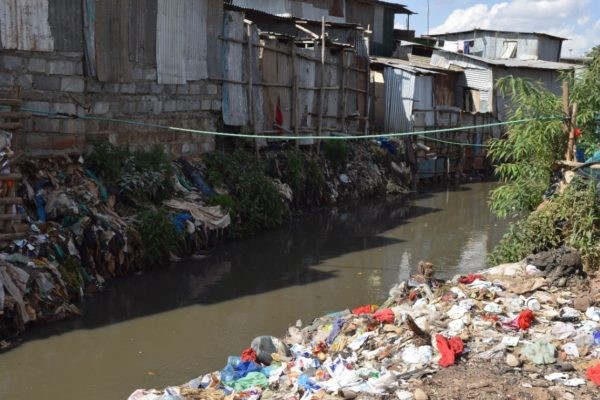
In response to the challenges facing learning institutions as a result of Covid-19, Shalom-SCCRR has put in a great deal of effort and resources in supporting the smooth restoration of learning in the schools situated in informal settlements as presented below:
Protecting the education of the girl-child
Ms. Catherine Maina, a Community Facilitator in Kariobangi and a parent noted that: “due to loss of livelihoods particularly in low-income households, some children have been forced to drop out of school and indulge in income-generating activities to support their families’ survival.” She mostly attributed this to the fact that; “securing food takes precedence over learning in the urban slum areas.”
Mr. Geoffrey Opondo, Headteacher, St. John Catholic Primary, Korogocho further observed; “that Covid-19 led to an increase in sexual exploitation with the young girls engaging in transactional sex in order to gain not only survival and access to essential needs like sanitary towels, but also to support their families.” These survival tactics, desperation, and idleness among the young girls he noted; “highly contributed to early and unplanned teenage pregnancies which have notably been on the rise during Covid-19.”
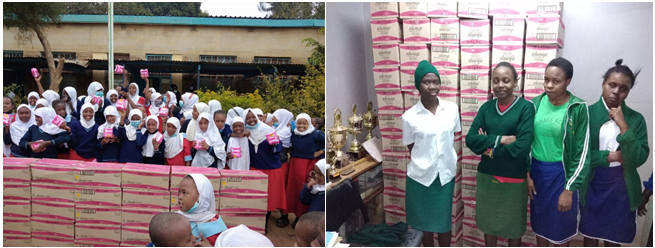
Developing school infrastructure; motivating children to be in school
Most schools are characterized by dilapidated facilities which are a threat to the children’s safety in schools.
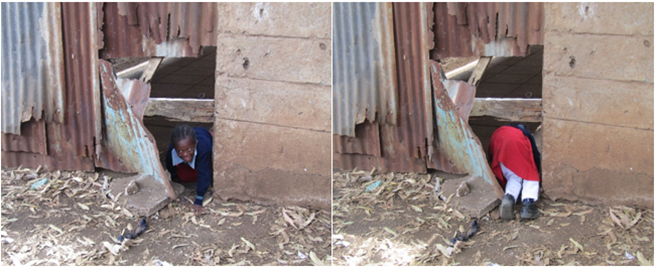
Shalom-SCCRR has been focusing on providing material support to schools hosting the most vulnerable children in informal settlements, and children with disabilities in various schools. Six (6) most needy schools from Kibera, Mathare and Kariobangi slums have benefitted from different development projects implemented by Shalom-SCCRR between 2020 and 2021. These development interventions have been instrumental in motivating the children to remain in school and to re-establish education infrastructure that was run down due to the prolonged absence of children in schools.
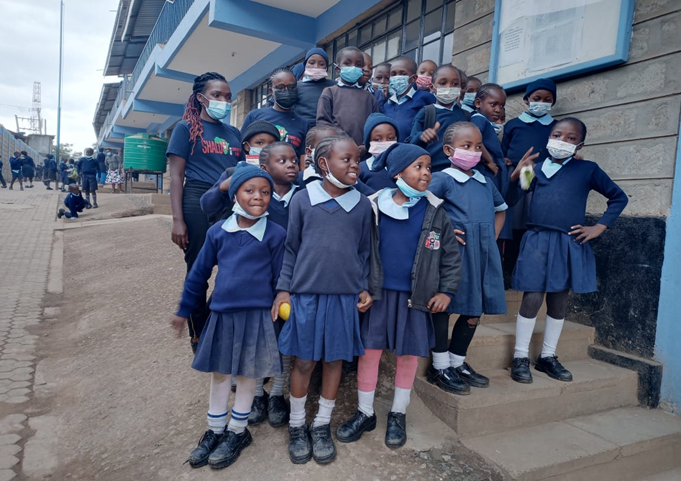
Through its development interventions, Shalom-SCCRR has ensured that these schools have sufficient number of desks and textbooks to ensure that children are able to continue their education in a safe and healthy environment. Currently, the ratio of pupils to desks is 1:1, and pupils to textbooks is 1:2 in the 6 supported schools. The supply of sufficient desks and books in schools has enhanced the maintenance of social distancing between the children in class and improving the confidence of both children and parents in the safety of the classroom environment from any possible spread of the coronavirus among the pupils.
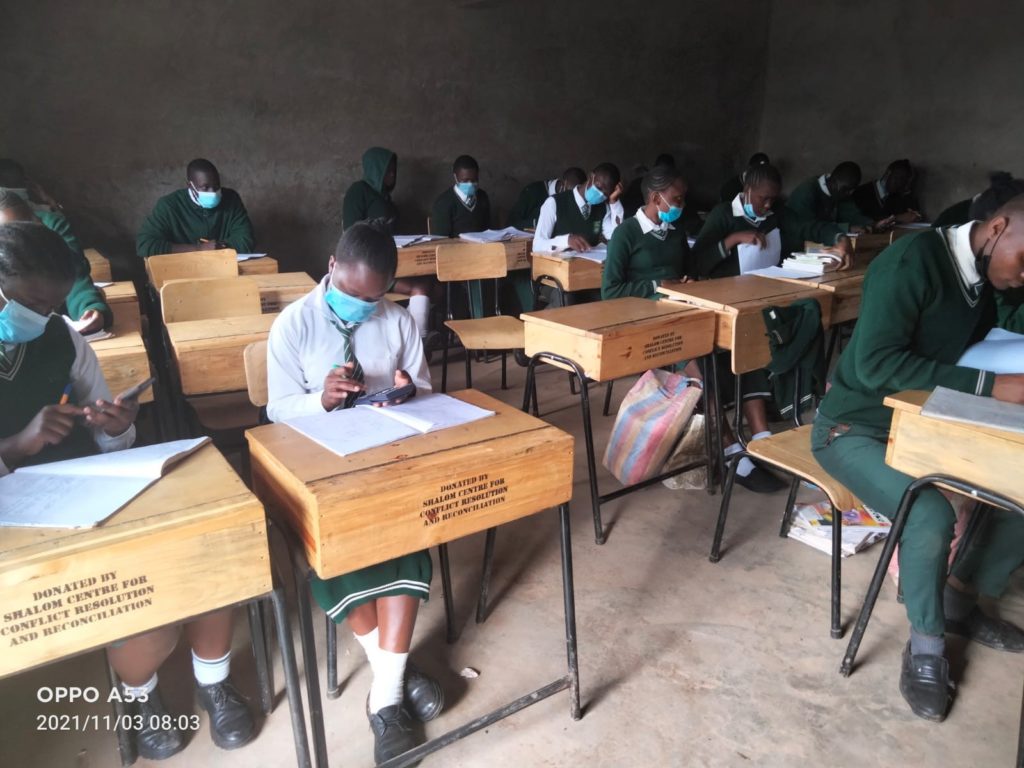
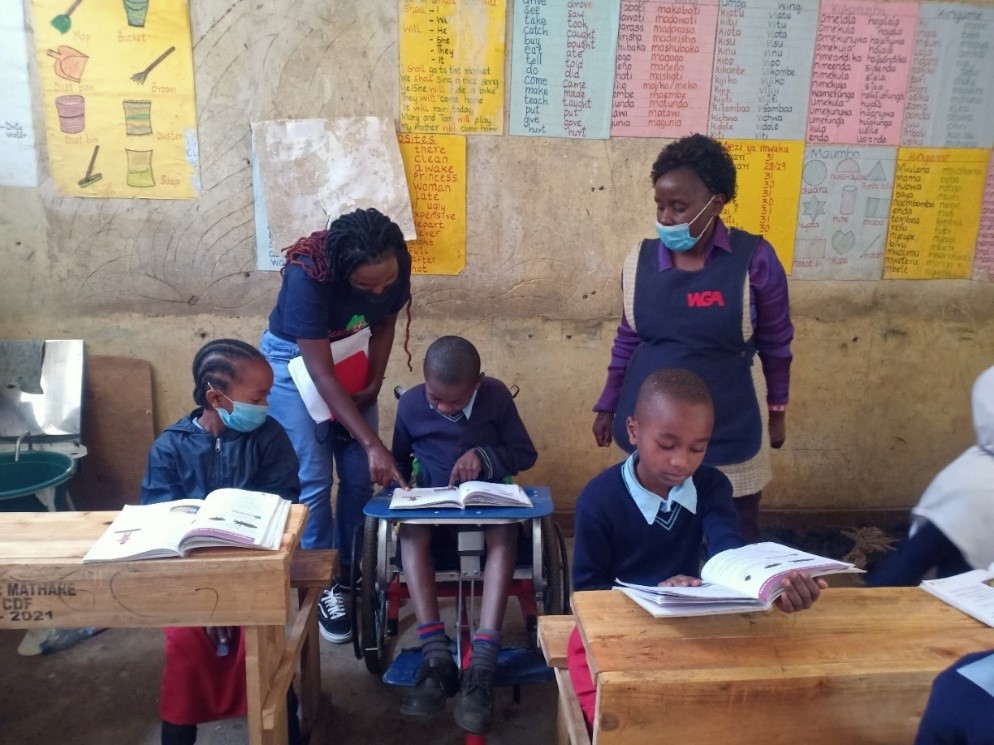
By:
Judith Akedi MA, Shalom-SCCRR Project Officer, Nairobi & Women Projects
&
Shalom-SCCRR Communications Department.
Relevant Links:
http://Briefing Paper No 1: A Conflict Analysis of Nairobi’s Informal Settlements
https://shalomconflictcenter.org/fr-john-ocallaghan-turkana-land-and-shalom-sccrr/
CONNECT WITH SHALOM-SCCRR

